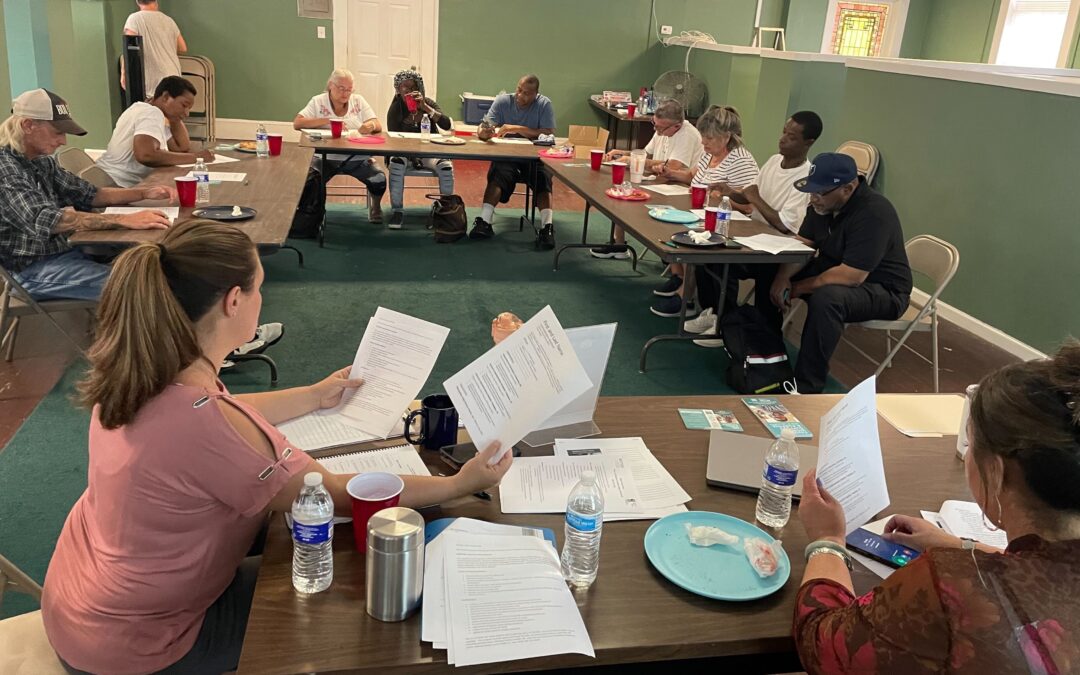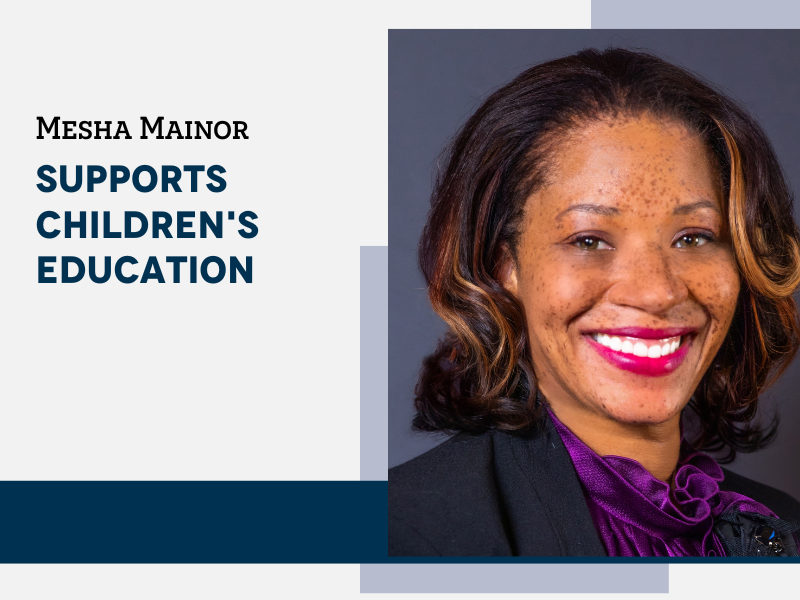
Q&A with Amber Gorman on BETTER WORK Columbus’ Small Changes = Big Results class

Q&A with Amber Gorman on BETTER WORK Columbus’ Small Changes = Big Results class
Key Points
We recently sat down with Amber Gorman, program specialist for BETTER WORK Columbus, to discuss a new GCO-led class being offered in the area called Small Changes = Big Results. In this interview, Amber shares what makes the class unique and how it’s helping workers and employers in the Columbus region.
Q: What is the Small Changes = Big Results class? Who does it serve and what does it cover?
Amber: The new training that’s being offered through GCO’s Better Work Columbus program is a four-part series to help those in our community understand the “why” behind essential skills. The training was offered at SafeHouse Ministries in Columbus, Georgia, and many of their clients were in attendance. Now, SafeHouse serves the homeless population to help them obtain shelter, permanent housing, and employment.
Q: So what inspired the class? How did it get started?
Amber: There are many trainings and opportunities for job seekers in the community to gain knowledge of the topics that we introduced in class, but we noticed a disconnect as many were not seeing the value in these trainings or incorporating them into their job search and interviewing process. They were being taught how to do these things, but not necessarily why they were important. The focus of our training was to help explain why it matters. We wanted to complement and not duplicate the services already being offered, so at the end of each session participants were provided with resources where they could obtain more training and information about what we talked about during that class.
Q: What are some topics covered in the class?
Amber: Our Better Work Columbus program director Kristin Barker, and the lead recruiter from Columbus Water Works Inez Godbee, facilitated the first session. They helped to inform and educate the participants on why what you share in an interview matters, and then tips for best practices during interviewing. They also covered how to utilize job descriptions and job postings to make your resume stand out.
In the second session, we talked about why good communication and time management are essential before, during, and after employment, and how they directly relate to respect. The third session, one of our guest facilitators helped us understand why healthy relationships matter and how to build and maintain those relationships. They also introduced social capital — what it is and how it can be used to overcome roadblocks to employment.
For our fourth session, we had The Family Center in Columbus and Renasant Bank come in, and they brought valuable information to help the participants understand why budgeting matters and tips to get started on creating a budget and savings plan. They also touched on credit — what it is and how credit is sometimes used by employers and rental companies.
Work means more than just a paycheck. That is why we are focused on opening up the opportunities to work and thrive in every community.
Work means more than just a paycheck. That is why we are focused on opening up the opportunities to work and thrive in every community.
Q: What’s some of the best advice to come out of the sessions?
Amber: There are so many golden nuggets that happened, but here are some of the best pieces of advice I heard. First, presenting a positive self-image will encourage an employer to consider you for hire regardless of your background or past mistakes. Second, being on time matters. It communicates to others whether they can trust and rely on you.
Third, your value comes from God, and believing that will impact how you see yourself and how others see you as well. And then the fourth and final one is to avoid setting goals that someone else tells you to set, or goals that you feel obligated to set. Set goals that are realistic and personal to you.
Each one of these has a correlation to how someone views themselves. If you have a negative view of yourself, others will see that too, but if you change the story in your mind — from failure to gratitude or even success — this can help us to portray a positive self-image. As a result, others will pick up on our energy and start to see us in that light also, and this can create many opportunities and open doors that we thought should or would be closed to us.
Q: That’s great! So were there any stories from the inaugural training that stood out in particular?
Amber: Yes! We had a participant who had limited skills in reading and writing, and this has been a roadblock for him for many years, but he now knows that there are people who care and are willing to invest their time to see him succeed. I assisted him throughout each session and we built a relationship, and he started to trust me and to share more of his story with everyone. Then, through collaboration with the SafeHouse, he is now being connected with a personal tutor who’s going to work with him on his reading and writing skills so that he can obtain a better paying position.
Q: Any overall advice for employers or community partners who are looking to connect with people looking for work?
Amber: I thought about this one for a while, and my advice would be to try to understand the different social norms of groups, and use that knowledge to help educate others on the expectations for the workplace. Every failed interview can be an opportunity to provide constructive feedback to help that person succeed in their next interview.
Q: What’s in store for the rest of the year?
Amber: We’ve got to do an “after action” review, but I would say that this is going to be something that is going to continue and to grow in Columbus.








